Writing in 1931, James Thurber describes the view from the top of the Empire State Building.
In 1960, Thurber fulfilled a long-standing desire to be on the professional stage and played himself in 88 performances of the revue A Thurber Carnival (which echoes the title of his 1945 book, The Thurber Carnival). It was based on a selection of Thurber's stories and cartoon captions. Thurber appeared in the sketch "File and Forget". The sketch consists of Thurber dictating a series of letters in a vain attempt to keep one of his publishers from sending him books he did not order, and the escalating confusion of the replies.[22] Thurber won a special Tony Award for the adapted script of the Carnival.[23]
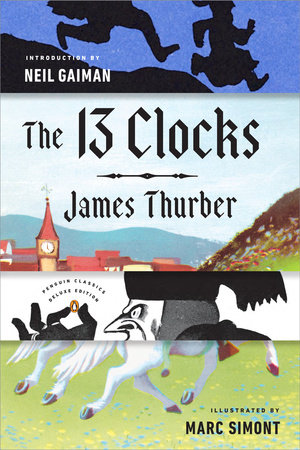
The 13 Clocks
(PENGUIN CLASSICS DELUXE EDITION)
By JAMES THURBER
Illustrated by MARC SIMONT
Introduction by Neil Gaiman
Part of Penguin Classics Deluxe Edition
Category: Fairy Tales | Fiction Classics | Literary Fiction
PRAISE
“This book . . . is probably the best book in the world. And if it’s not the best book, then it’s still very much like nothing anyone has ever seen before, and, to the best of my knowledge, no one’s ever really seen anything like it since. . . . It’s unique. It makes people happier, like ice cream.” —Neil Gaiman, from the Introduction
“One of the cleverest [fairy tales] that any modern writer has been able to tell.” —Time
“Rich with ogres and oligarchs, riddles and wit. What distinguishes [The 13 Clocks] is not just quixotic imagination but Thurber’s inimitable delight in language. . . . Thurber captivates the ear and captures the heart.” —Newsweek
“There are spys, monsters, betrayals, hair’s-breadth escapes, spells to be broken and all the usual accouterments, but Thurber gives the proceedings his own particular deadpan spin. . . . It all makes for a rousing concoction of adventure, humor and satire that defies any conventional classification.” —Los Angeles Times
“The great New Yorker humorist James Thurber wrote a few children’s books, the best of which may be The 13 Clocks . . . . [Marc Simont] provided beautifully cartoonish yet subtle mini-paintings that convey Clocks’ varying moods of gloom, menace, surprise, and joy.” —Entertainment Weekly
“One of [Thurber’s] best but overlooked works . . . A raucous play of words that sounds like poetry, reads like prose, and narrowly skirts the line between the ridiculous and the profound.” —World Magazine
“If you liked The Princess Bride, you’re going to like this. . . . If you remember Fractured Fairy Tales on Rocky and Bullwinkle, you’ll like this. We suggest, read the beginning. We’re not going to give away the plot, because it’s all in the language with a book like this.” —Daniel Pinkwater, NPR’s Weekend Edition Saturday
“One of the cleverest [fairy tales] that any modern writer has been able to tell.” —Time
“Rich with ogres and oligarchs, riddles and wit. What distinguishes [The 13 Clocks] is not just quixotic imagination but Thurber’s inimitable delight in language. . . . Thurber captivates the ear and captures the heart.” —Newsweek
“There are spys, monsters, betrayals, hair’s-breadth escapes, spells to be broken and all the usual accouterments, but Thurber gives the proceedings his own particular deadpan spin. . . . It all makes for a rousing concoction of adventure, humor and satire that defies any conventional classification.” —Los Angeles Times
“The great New Yorker humorist James Thurber wrote a few children’s books, the best of which may be The 13 Clocks . . . . [Marc Simont] provided beautifully cartoonish yet subtle mini-paintings that convey Clocks’ varying moods of gloom, menace, surprise, and joy.” —Entertainment Weekly
“One of [Thurber’s] best but overlooked works . . . A raucous play of words that sounds like poetry, reads like prose, and narrowly skirts the line between the ridiculous and the profound.” —World Magazine
“If you liked The Princess Bride, you’re going to like this. . . . If you remember Fractured Fairy Tales on Rocky and Bullwinkle, you’ll like this. We suggest, read the beginning. We’re not going to give away the plot, because it’s all in the language with a book like this.” —Daniel Pinkwater, NPR’s Weekend Edition Saturday
James Thurber
| |
|---|---|
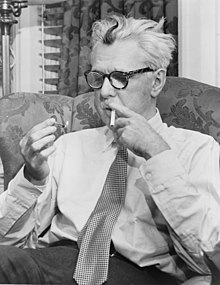
James Thurber in 1954
| |
| Born | James Grover Thurber December 8, 1894 Columbus, Ohio, U.S. |
| Died | November 2, 1961 (aged 66) New York City, U.S. |
| Resting place | Green Lawn Cemetery, Columbus, Ohio, U.S. |
| Occupation | Humorist |
| Nationality | American |
| Period | 1929–1961 |
| Genre | short stories, cartoons, essays |
| Subject | humor, language |
| Notable works |
|
| Notable awards | Tony Award for "A Thurber Carnival" (1960) |
| Spouse |
Althea Addams Thurber (m. 1925–1935)
Helen Wismer Thurber (m. 1935–1961)
|
| Children | 1 |



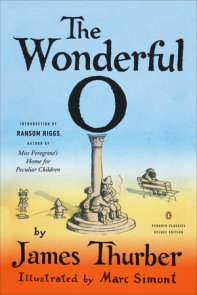
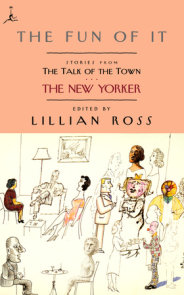
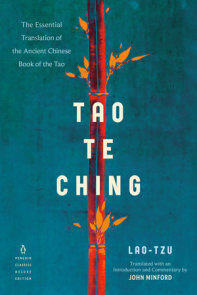
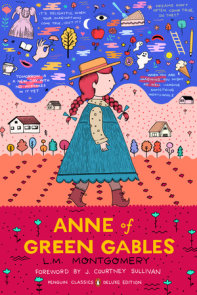
沒有留言:
張貼留言